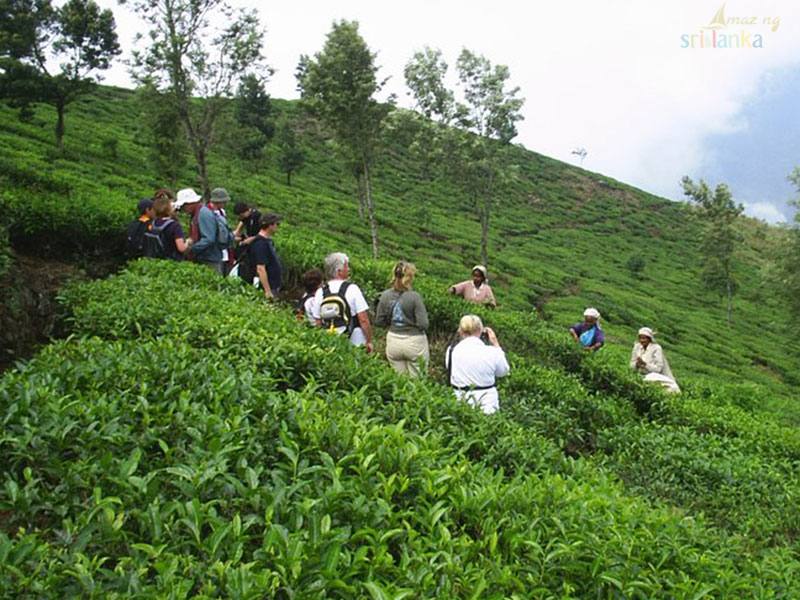Discover the World of Ceylon Tea: Sri Lanka's Finest Brew
Tea enthusiasts around the globe know that Ceylon tea, grown in the lush landscapes of Sri Lanka, holds a special place in the world of tea. Renowned for its exceptional flavor, aroma, and quality, Ceylon tea has a rich history dating back to the 19th century. Join us as we delve into the origins of Ceylon tea, explore its cultivation and production processes, and uncover why it's celebrated as one of the finest teas worldwide.
The Origins of Ceylon Tea
Ceylon tea's captivating journey began in the early 1800s when the British sought an alternative to the decimated coffee industry in Sri Lanka. Scottish planter James Taylor planted the first tea bushes in Sri Lanka in 1867, initiating a tea revolution that transformed the island's landscape. By the turn of the century, Sri Lanka emerged as a leading tea exporter, thanks to its favorable climate and fertile soil.
The Tea Industry in Sri Lanka
Sri Lanka's economy hinges on its thriving tea industry, employing hundreds of thousands and serving as a significant export commodity. With over 200,000 hectares of land dedicated to tea cultivation, Sri Lanka ranks among the world's top tea producers. The industry sustains itself through a network of large plantations and small-scale growers, exporting its prized teas to over 160 countries.
How Ceylon Tea is Grown and Processed
The journey of Ceylon tea begins in the highlands of Sri Lanka, where ideal growing conditions yield tender tea leaves. Hand-plucked with precision, the leaves undergo meticulous processing, including withering, rolling, fermenting, drying, and sorting. These steps culminate in the creation of exquisite Ceylon teas, each with its distinctive flavor profile and character.
Types of Ceylon Tea
Ceylon tea offers a diverse range of flavors and aromas, catering to every palate. From robust black teas to delicate white teas, each type boasts its unique characteristics, making Ceylon tea a versatile and beloved beverage worldwide.
The Importance of Origin (Areas)
Sri Lanka's tea-growing regions, including Nuwara Eliya, Dimbula, Uva, and more, impart distinct nuances to Ceylon tea. These terroirs, characterized by their altitude, climate, and soil, contribute to the tea's exceptional flavor profiles, creating teas that are unparalleled in their complexity and richness.
Health Benefits of Ceylon Tea
Beyond its exquisite taste, Ceylon tea offers numerous health benefits. Rich in antioxidants, Ceylon tea boosts the immune system, promotes heart health, supports digestion, enhances mental alertness, aids in weight loss, and promotes oral health. With every sip, enjoy not only the flavor but also the wellness benefits of Ceylon tea.
Ceylon Tea Around the World
Sri Lanka's esteemed Ceylon tea finds its way to tea lovers across the globe. Exported to nearly 160 countries, Ceylon tea holds a prominent place in markets worldwide, from the Middle East to Russia, China, and beyond. Its popularity continues to soar as consumers seek high-quality, sustainably-produced teas.
Popular Ceylon Tea Brands
Dilmah, Akbar Tea, Basilur Tea, Melsna Tea, and other renowned brands showcase the excellence of Ceylon tea. With their commitment to quality and innovation, these brands offer a wide array of teas, ensuring that every tea lover finds their perfect cup of Ceylon tea.
Ceylon tea, with its rich heritage, unparalleled quality, and diverse flavors, continues to captivate tea enthusiasts worldwide. Whether enjoyed hot or cold, with milk or without, Ceylon tea promises a delightful sensory experience with every sip. Embrace the tradition, taste the excellence, and savor the moment with Ceylon tea.


